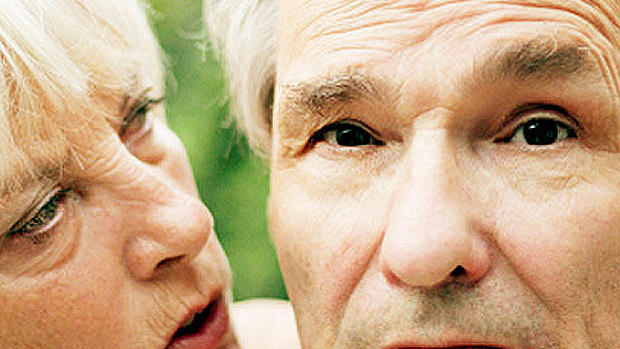Drink away your dementia risk? Maybe so, study suggests
(CBS) Move over crossword puzzles. A new study suggests moderate drinking is another way to fight off dementia.
Pictures: Alzheimer's disease: 7 things that raise your risk
"We don't recommend that nondrinkers start drinking," Dr. Edward J. Neafsey, professor of pharmacology at Loyola University Chicago, said in a written statement. "But moderate drinking - if it is truly moderate - can be beneficial."
For the study - published in the August issue of Neuropsychiatric Disease and Treatment - researchers reviewed studies on more than 365,000 people. Seventy-four studies looked at different risk factors between drinkers and nondrinkers, while 69 studies compared memory and cognition in drinkers and non-drinkers. The researchers found that people who drink one or two drinks a day were 23 percent less likely to develop dementia. The protective benefit held true across ages, education levels, country of origin, or gender. Heavy drinking, on the other hand, was associated with a higher risk for dementia.
How does moderate drinking benefit the brain? The scientists aren't sure. One theory is since moderate drinking is linked with increasing good cholesterol and protecting the arteries, it may somehow increase blood flow to the brain.
Not all experts were convinced.
Dr. Sam Gandy, chair in Alzheimer's Disease Research and professor of neurology at the Mount Sinai Hospital in New York City told HealthDay the study "falls in the category of epemiology," meaning its only observational and not as scientifically rigorous to recommend treatment. "Until there are some randomized clinical trial data, no patient guidance is warranted," he said.
Exercise, a balanced diet, and lifelong education are other ways to fight off memory loss, according to WebMD.


